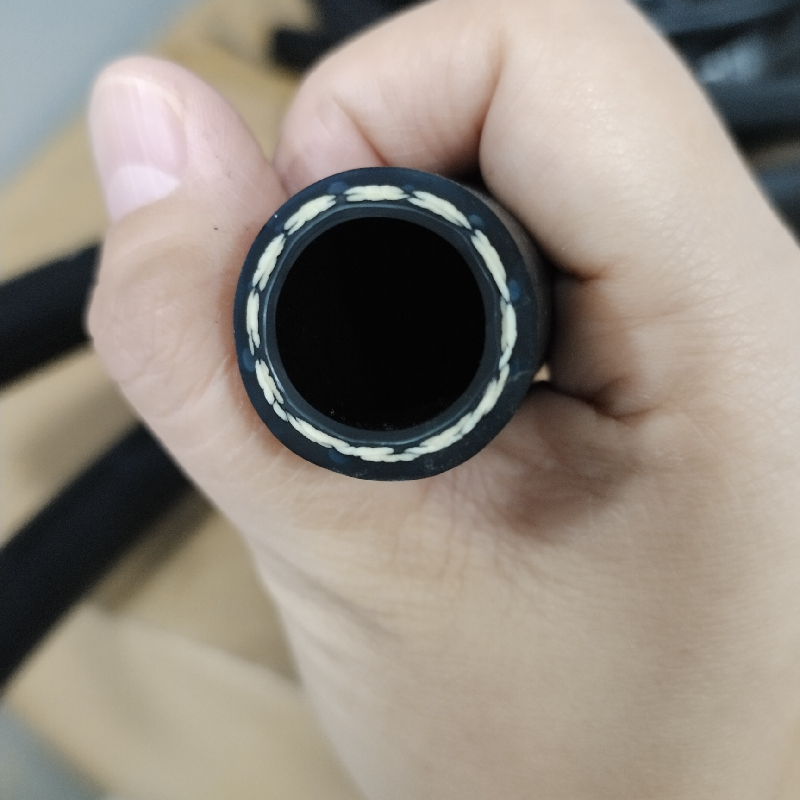High Temperature Fuel Line Innovations for Enhanced Performance and Safety
Gus . 16, 2024 23:56 Back to list
High Temperature Fuel Line Innovations for Enhanced Performance and Safety
High Temperature Fuel Lines Essential Components for Modern Engines
In the realm of automotive engineering, the efficiency and performance of an engine are paramount. A crucial element that contributes to this is the fuel system, particularly the fuel lines. Among the various types of fuel lines, high temperature fuel lines play an instrumental role in ensuring optimal engine performance. This article delves into the significance, specifications, and advancements of high temperature fuel lines.
Understanding High Temperature Fuel Lines
High temperature fuel lines are designed to transport fuel at elevated temperatures while maintaining structural integrity and preventing leaks. These lines are typically composed of materials that can withstand the corrosive effects of fuel and the heat generated by the engine. Common materials include fluoropolymers, silicone, and resistant elastomers, all engineered to cope with the extreme conditions inside a modern engine compartment.
Importance in Engine Performance
The primary function of fuel lines, including high temperature varieties, is to deliver fuel from the tank to the engine with minimal pressure loss. This is essential for the various injector systems to function appropriately. When fuel lines cannot handle high temperatures, it can lead to fuel vaporization, resulting in poor fuel delivery, engine knocking, and reduced performance. Additionally, high temperature fuel lines help prevent the fuel from degrading, which can otherwise lead to engine deposits and inefficiencies.
Designing for Durability
Given the harsh environment in which they operate, high temperature fuel lines are engineered with several core considerations. The walls of these lines must be thick enough to resist heat and pressure while being flexible enough to accommodate engine movements. Moreover, they need to be resistant to various fuels, including gasoline, diesel, and biofuels, ensuring compatibility in multi-fuel systems. Manufacturers often subject high temperature fuel lines to rigorous testing, including temperature cycling, puncture resistance, and long-term exposure to fuels, to ensure they meet stringent industry standards.
high temp fuel line

Innovations in High Temperature Fuel Lines
Recent advancements in materials science have led to the development of next-generation high temperature fuel lines. For instance, the introduction of advanced composites, such as carbon-fiber-reinforced plastics, provides enhanced strength while maintaining lightweight characteristics. These innovations not only improve the lines' performance under high stress but also contribute to overall vehicle efficiency by reducing weight.
Moreover, with the increasing popularity of electric and hybrid vehicles, the design of fuel lines has adapted accordingly. Manufacturers are now focused on creating fuel lines that are not only heat-resistant but also equipped with sensors to monitor fuel temperature and pressure in real-time. This data can be integrated into vehicle management systems, optimizing fuel delivery and combustion processes.
Ensuring Safety and Compliance
Safety is paramount when it comes to fuel handling in any vehicle. High temperature fuel lines must comply with various regulations, including those set by the Society of Automotive Engineers (SAE) and the National Fire Protection Association (NFPA). Regular inspections and adherence to maintenance practices are essential to ensure that these lines remain in good condition, preventing leaks and potential fire hazards.
Conclusion
In conclusion, high temperature fuel lines are critical components that ensure the efficient and safe operation of modern engines. Their ability to withstand extreme temperatures and pressures while maintaining fuel integrity is crucial for optimal engine performance. As technology progresses, these fuel lines will continue to evolve, offering heightened durability and safety, ultimately contributing to the advancement of automotive engineering. Investing in quality high temperature fuel lines is not merely a necessity but a commitment to performance and safety for both manufacturers and consumers alike.
